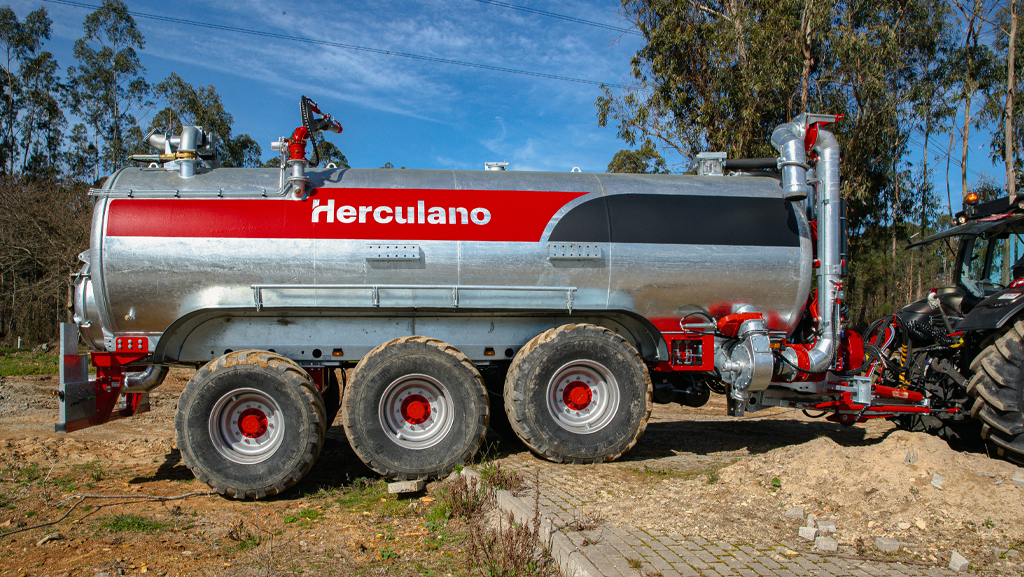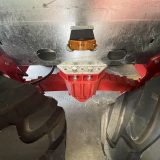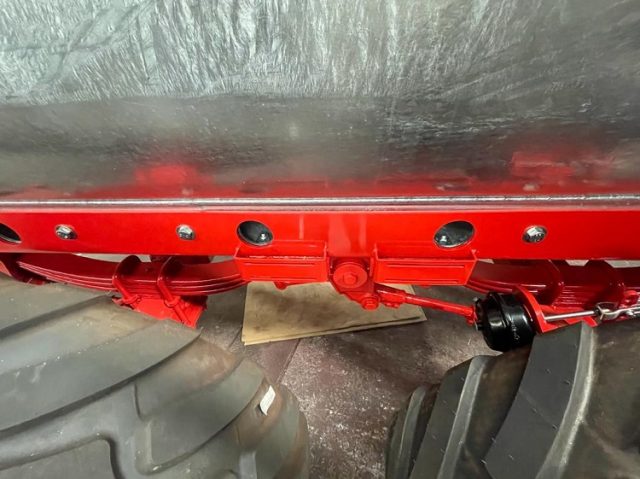Learn how to choose the ideal suspension to boost your agricultural trailer

Agricultural trailers are essential equipment in modern agriculture, providing efficient transportation of all kinds of agricultural products and their derivatives, and they can also be used in industry and public works.
One of the key elements that has a significant impact on their performance and stability is the suspension system. In agriculture, four types of suspension are often used: mechanical bogie suspension, mechanical tandem suspension, mechanical tridem suspension and hydraulic suspension (axle or semi-axle).
1. Mechanical bogie suspension
This is the best-known type of suspension and is most commonly used on agricultural trailers, with two axles connected to each other by a suspension (sets of springs). They are mostly used because of their adaptability to various types of terrain. It is the ideal and most economical type of suspension for use on agricultural land and uneven surfaces.
Advantages:
- Cost: It's the most economical suspension and the easiest to maintain.
- Handling: Efficient handling on uneven terrain.
Disadvantage:
- Amplitude: The height of the equipment in relation to the ground cannot be adjusted.

2. Tandem and tridem mechanical suspensions
Tandem suspension involves the use of two axles, while tridem suspension uses three. In both cases, the axles are supported by spring beams. It is a common choice for many agricultural trailers, which travel over flatter, longer terrain and roads.
Advantages:
- Driving: Suitable for long journeys.
Disadvantages:
- Stability: Although more stable on the road, they are not as efficient in the field.
- Amplitude: The height of the equipment in relation to the ground cannot be adjusted.

3. Hydraulic suspension (axle or semi-axle)
In the world of modern agriculture, efficiency and safety are paramount considerations. Hydraulic suspension systems offer several advantages over traditional mechanical suspension configurations.
Advantages:
- Stability: One of the main advantages of hydraulic suspension on agricultural semi-trailers is greater stability and controllability, which means that the equipment is always level.
It also allows the height and rigidity of the suspension to be adjusted. - Vibration and impact reduction: Reducing vibr ations and impacts guarantees the integrity of the load and extends the life of the semi-trailer, reducing maintenance costs.
Disadvantage:
- Cost: This is the type of suspension with the highest cost.
Conclusion
The choice of suspension system depends on the specific needs and considerations of the user. Although mechanical suspensions are the most requested, for more intensive and professional use, hydraulic suspension is recommended.
A careful assessment of factors such as load requirements, terrain and budget will help farmers and professionals choose the best solution.


